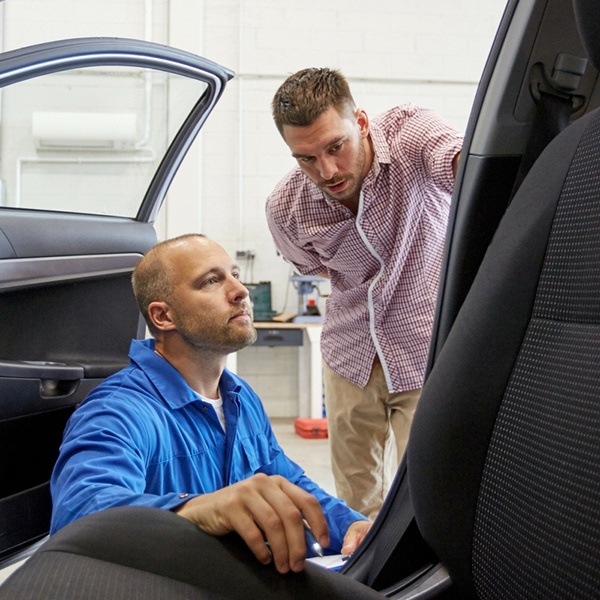With the flood waters of hurricanes Harvey and Irma now easing, a new kind of flood is taking place. It’s created by a wave of waterlogged cars that are heading to the scrap yard. While it may seem that a car should be salvageable once it dries out, that is not the case. Water damage corrodes the mechanics of a vehicle, making it unsafe to drive.
While laws regarding salvage titles have tightened since Hurricane Sandy, used car buyers should still be wary in the months to come. Here’s why.
If the car is insured, the owner of a flooded car files a claim. In most cases, the insurance company totals the car and issues a check. The insurance company now owns the car. They are required to mark the title as salvaged – flooded. It can then be sold to a scrap yard which can remove any restorable parts then crush it for scrap. The end. Or is it?
Sometimes, unscrupulous people will “wash” the title and resell the vehicle with a clean title. This is especially true when original titles are missing. Then there is the problem of the cars whose owners don’t carry insurance. Despite laws to carry insurance, many do not.
So between unethical people and uninsured vehicles, flood cars are bound to turn up in the months to come. No need to worry, a bit of common sense and attention to detail can keep you out of trouble. Here are a few things to look for:
- Check the VIN on CarFax. This is a no brainer for any vehicle purchase.
- Sniff around. It is very hard to get rid of the moldy aroma from a flooded car. If you don’t have a good sense of smell, bring some with you who does.
- Feel around for water. Look in places like glove boxes, under carpets, and in the trunk.
- Check the upholstery for stains or blotches. Conversely, if the seats look a lot newer than the car, they’ve possibly been replaced.
- Check the oil and air filter. You’re looking for oil that looks like a Dunkin’s Iced Coffee with 2 creams in it. If it is this color, water has gotten into the oil pan. The air filter should show no stains.
- Check all clear plastic parts – headlights, dashboard, interior lights, and tail lights. Are they clear or foggy? Fog indicates they’ve been submerged in water.
- Is there any silt or dirt in places it should not be?
Most of us are not experts on flood-damaged cars. If you really like the car, but something’s just fishy about it, have it checked by a mechanic you trust. They will know where to look for hidden water damage. They can also check the electrical system to make sure it is in good shape. Remember, too, that you should always bring a disinterested third party with you when shopping for any car. They will spot things that you miss.
You may think, ‘The car was rebuilt, I’m getting a great deal, why not buy a flood-damaged car?’ Two reasons come to mind:
- Even if the car runs perfectly well on your test drive, it is not apt to do so much longer. Corrosion that you can’t see is literally eating it from the inside out.
- If the title is stamped “Salvage” or “Flooded,” you will never resell it.
Laws are better since Hurricane Sandy and people are better educated about flooded cars. But in the wake of hurricane season, you can’t be too careful when shopping for a used vehicle.
Did you know…?
One CarFax report is available free of charge when you get a Hanscom FCU vehicle loan after reviewing the report.
Other members are reading:
Get Lower Payments of a Better Car



-2.png)
-1.png)








Comment